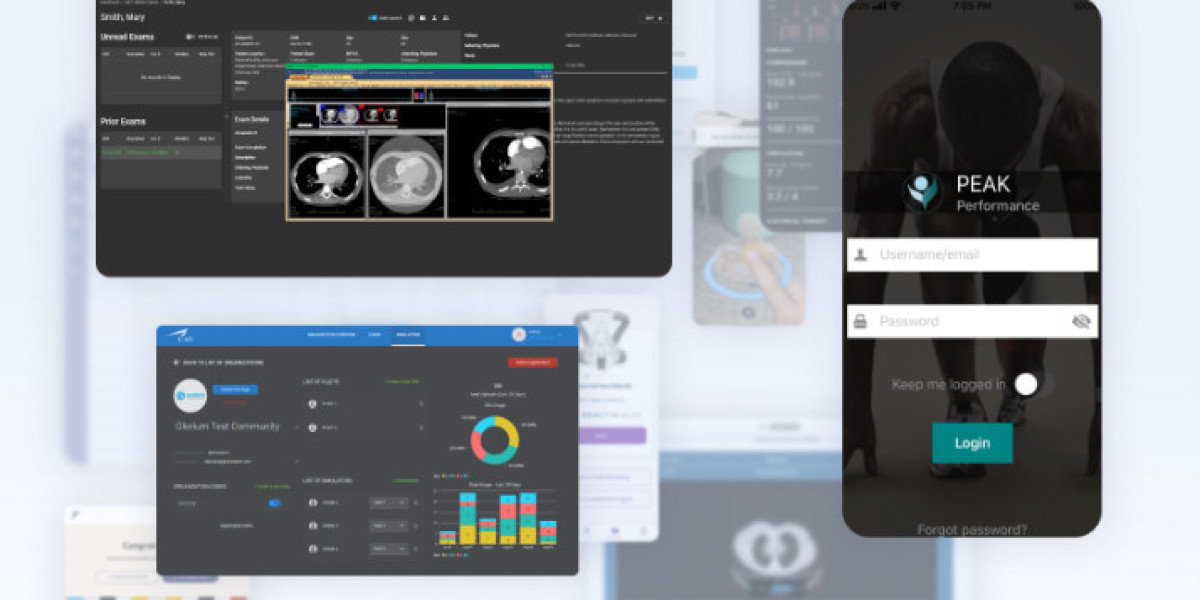In recent years, the healthcare industry has witnessed a remarkable transformation driven by technological advancements. Among these, Artificial Intelligence (AI) and Machine Learning (ML) stand out as revolutionary forces reshaping how healthcare providers deliver services and manage patient care. The integration of AI and ML into custom healthcare software development is accelerating this change, offering tailored solutions that improve accuracy, efficiency, and patient outcomes.
This article explores the critical role AI and ML play in custom healthcare software development, highlighting their impact, key applications, benefits, and future prospects.
Understanding AI and Machine Learning in Healthcare
Artificial Intelligence broadly refers to computer systems' ability to perform tasks that typically require human intelligence. Machine Learning, a subset of AI, enables systems to learn from data patterns and improve their performance over time without being explicitly programmed for each task.
In healthcare, AI and ML analyze massive datasets—such as medical records, imaging, genomics, and real-time patient monitoring data—to identify patterns, predict outcomes, and assist in clinical decision-making. When these technologies are embedded into custom healthcare software, they empower healthcare organizations to build precise, scalable, and user-centric solutions tailored to their unique needs.
Why Custom Healthcare Software Development Matters
Generic healthcare software can only do so much because healthcare providers often face unique challenges depending on their size, specialty, patient demographics, and regulatory environments. This is where custom healthcare software development becomes crucial. By designing software solutions tailored to specific workflows and requirements, healthcare organizations can better leverage AI and ML technologies to maximize their benefits.
Custom software allows for:
Seamless integration with existing hospital or clinic systems
Adaptation to specific medical specialties (oncology, cardiology, psychiatry, etc.)
Compliance with local and international health regulations (HIPAA, GDPR, etc.)
Enhanced patient engagement features specific to the target population
More efficient data management and security protocols
Now, let’s dive into how AI and ML enrich these custom-built solutions.
Key Applications of AI and Machine Learning in Custom Healthcare Software
1. Predictive Analytics for Patient Outcomes
Machine learning models can analyze historical and real-time data to predict disease progression, readmission risks, and treatment outcomes. Custom healthcare software integrated with predictive analytics helps clinicians make proactive decisions.
Example: A hospital’s custom patient management system can alert staff to patients at high risk of complications post-surgery, enabling timely intervention and reducing mortality rates.
2. Medical Imaging and Diagnostics
AI-powered image recognition algorithms can analyze X-rays, MRIs, CT scans, and pathology slides with high accuracy, often matching or exceeding human expert performance.
Custom healthcare software can incorporate these AI models to assist radiologists and pathologists by flagging abnormalities and providing second opinions, reducing diagnostic errors and accelerating the process.
3. Personalized Treatment Plans
AI and ML can analyze genetic information, lifestyle data, and clinical history to recommend personalized treatment regimens tailored to individual patients.
Custom healthcare software systems can use this to support precision medicine, enabling oncologists to prescribe targeted therapies based on tumor genetics or helping diabetologists optimize insulin dosing algorithms.
4. Virtual Health Assistants and Chatbots
Custom-built AI chatbots integrated into patient portals or mobile apps offer 24/7 assistance, answering queries, scheduling appointments, reminding patients about medications, and even conducting preliminary symptom checks.
These tools improve patient engagement and reduce the burden on healthcare staff.
5. Drug Discovery and Development
AI accelerates drug discovery by analyzing biological data to identify promising compounds and predict their effects.
While this application is typically more relevant in biotech, custom healthcare software for research institutions incorporates AI modules to streamline the R&D pipeline, facilitating faster clinical trials and approvals.
6. Remote Monitoring and Wearables Integration
Machine learning models analyze continuous streams of data from wearable devices—such as heart rate, glucose levels, or oxygen saturation—to detect anomalies early.
Custom healthcare software can integrate with these devices, providing doctors and patients with actionable insights in real-time, crucial for chronic disease management.
Benefits of Integrating AI and ML in Custom Healthcare Software
Enhanced Diagnostic Accuracy
AI reduces human error by supporting evidence-based diagnosis, ensuring patients receive timely and accurate care.
Improved Operational Efficiency
Automated workflows and predictive maintenance of medical equipment reduce downtime and optimize hospital resources.
Cost Reduction
Early diagnosis, personalized treatment, and operational optimization help reduce unnecessary procedures, hospital stays, and overall healthcare costs.
Better Patient Engagement and Satisfaction
AI-powered personalized communication, reminders, and virtual assistance improve adherence to treatment plans and patient experience.
Data-Driven Insights for Continuous Improvement
Healthcare providers gain valuable insights from patient data, enabling ongoing improvements in clinical protocols and health outcomes.
Challenges and Considerations in AI-Driven Custom Healthcare Software
Despite the promising benefits, integrating AI and ML into healthcare software is not without challenges:
Data Privacy and Security: Healthcare data is sensitive and regulated. Custom software must comply with strict privacy laws and implement robust security measures to protect patient information.
Data Quality and Availability: ML algorithms require high-quality, diverse datasets. Poor data quality or biases can lead to inaccurate predictions.
Interoperability: AI-powered custom software must integrate smoothly with existing healthcare systems and devices to be effective.
Regulatory Compliance: AI tools for healthcare are subject to medical device regulations and must pass rigorous validation.
User Acceptance: Clinicians and patients must trust and understand AI systems for them to be successfully adopted.
Addressing these challenges requires a collaborative approach involving healthcare experts, software developers, data scientists, and regulatory specialists.
The Future of AI and Machine Learning in Custom Healthcare Software
As AI technologies continue evolving, their role in healthcare software will deepen. Key future trends include:
Explainable AI (XAI): Making AI decisions transparent and understandable to clinicians to increase trust.
Integration of Genomics and Multi-Omics Data: Creating highly personalized medicine through deeper biological insights.
Real-time Clinical Decision Support: Leveraging streaming data and edge computing for instantaneous AI guidance.
AI in Mental Health: Developing predictive models and personalized interventions in psychiatric care.
AI-Driven Robotics: Enhancing surgical precision and automating routine clinical tasks.
With ongoing innovations, the synergy between AI, ML, and custom healthcare software development will be pivotal in transforming healthcare delivery worldwide.
Conclusion
Artificial Intelligence and Machine Learning have emerged as transformative technologies in healthcare, offering unprecedented opportunities to enhance diagnosis, treatment, patient engagement, and operational efficiency. When embedded in custom healthcare software, these technologies empower healthcare providers to address their unique challenges with tailored, intelligent solutions.
From predictive analytics to personalized medicine and virtual health assistants, AI and ML are redefining what healthcare software can achieve. However, successful adoption demands addressing data privacy, quality, interoperability, and regulatory issues with care.
As we look ahead, the role of AI and ML in custom healthcare software development will only grow stronger, driving innovation that leads to better health outcomes, lower costs, and a more patient-centered healthcare system.







